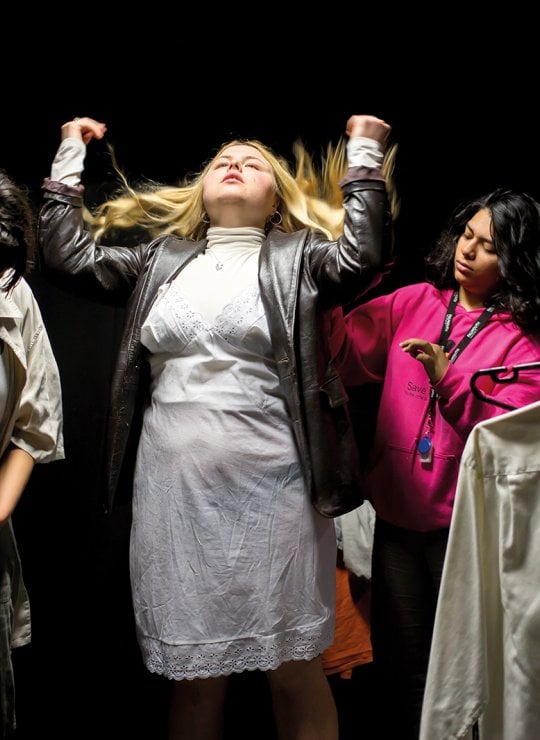
Costume Design for Film & Television BA(Hons)
Cultivate the skills to enter the world of costume design on-screen.
Course overview
Costume designers play a powerful role in the storytelling process, working from script to screen to create a character’s signature style. This course will equip you with in-demand expertise in garment design, acquisition, alteration and creation, as well as the knowledge and flair to achieve your vision. Armed with core skills including drawing, cutting and wardrobe curation, along with a career-launching showreel and the confidence to collaborate with industry professionals, you’ll have the edge over your peers as you enter this vibrant industry.
You will:
- Master core techniques such as drawing, cutting, wardrobe pulling and fitting
- Investigate the social, cultural and environmental factors that influence memorable costume designs of our time
- Analyse industry applications such as music promos, commercials and costume breakdown, applying this knowledge to innovative challenge-based projects
- Utilise our extensive wardrobe store and textiles and dress collection to achieve your vision of a character
- Refine your skills as a costume practitioner in your final year through a collaborative screen production project to develop your professional portfolio
Course details
On this Costume Design for Film & Television degree, you'll have the opportunity to gain a BA(Hons) degree over three years or the option to study Costume Design for Film & Television BA(Hons) with Integrated Foundation Year and/or a professional placement.
From costume design to wardrobe curation, exploring contemporary fashion history to interpreting scripts and characters and learning how to work as part of a creative team, we'll equip you with the creative, practical and entrepreneurial skills you'll need to succeed in this vibrant industry.
Meet Leila Joy Wallace, a third-year Costume Design for Film & Television BA(Hons) student at Falmouth University.
During the first year of this costume design degree, you'll be introduced to fundamental skills such as research, drawing, pattern cutting, garment alteration, fitting techniques, script analysis and costume plotting. You'll also learn how to become a costume designer that can analyse characters and scripts through the lens of anthropological, socio-political, psychological and cultural concepts. Practical work will be supported by lectures and written work exploring the history and theory of film and visual culture.
Modules
Making
You'll learn foundation skills in cutting and sewing as well as skills specific to the live fitting of garments on the body. You will explore shape and volume and fabric manipulation. Through practical workshops, you’ll learn how to use industrial sewing machines and operate efficiently and safely in a busy environment that mirrors professional practice.
Seeing
You'll develop enhanced observational skills and learn how to record, reference and communicate detailed information on the clothes worn by real people and the costumes worn by fictional characters. You’ll understand the cultural, social and environmental factors that support character development through costume.
Histories
You’ll learn how social and fashion histories impact today’s costume designs by examining real garments and fabrics from the Textiles & Dress Collection. You’ll explore the relationship between fashion, textiles, costumes and wider visual cultures.
Communicating
In this module you’ll develop your traditional drawing and painting skills of clothes and clothed models through abstraction and deconstruction techniques, to present costume designs effectively. You’ll also explore digital drawing, all the while contributing to your growing professional portfolio.
Belonging
A truly collaborative module, you’ll work in groups of mixed disciplines to explore ideas of identity in relation to costume choices, in an accepting and inclusive environment where we look to change established narratives. Ideas of marginalisation around ethnicity, ability, body size, religion and sexuality are discussed and applied to screen costumes, resulting in a game-changing showcase of work.
Emerging
Collaborating with students from Film, Television or Digital Games specialisms, throughout this module you’ll work in an environment that mirrors industry practice. You’ll work from concept art, scripts or game narratives to create moodboards, wardrobes and costume design options. This module culminates in the construction of a piece of costume fit for purpose, ready for peer review and feedback.
In year two you'll continue to develop your design profile through an exploration of screen theory, costume breakdown and industry applications, such as styling for music promos and commercials. Alongside your creative practice, you'll also gain vital skills for successful freelance practice, including budget organisation, self-management and collaboration.
Modules
Wearing
With industry practices at its centre, this module will teach you about costume buying, hiring and commissioning. You will also explore processes such as costume breakdown and the importance of detail when developing character 'realness'.
Classifying
In this module you will make use of film and media theory to explore how genre and costume bring characters to life. You will evaluate the work of established costume designers, exploring their role in the production design on screen. Taking into consideration historical, cultural and national contexts of screen fictions, you will examine how the intersection of themes, stories and characters is explored, how stereotypes are developed and exposed and how costume can contribute to positive change.
Appearing
This module provides an opportunity to bring fully-fledged costumes to life. Collaborating on a live project with industry partners or other Falmouth University schools, you'll be provided with a script and assigned a suitable costume design team role.
Performing
In this module you will explore how fantastical costume is made to perform on screen; how costume adapts to the demands of highly physical performances and how it has contributed to the spectacular in film and TV. You will explore the properties and potentials of materials and the means to articulate unreal characteristics and behaviours convincingly through costume design. Collaborating with colleagues in your class and in other schools within the university, you will contribute to the completion of a costume for embodied performance.
Theories
Delve deeper into the historical, social, cultural and global contexts, introducing theoretical perspectives to develop your own and others’ creative practice in an academic framework.
Branding
In this module you will consider the role and impact of visual content and context in styled images of celebrities, influencers and performers in a series of lectures and seminars. Working on the basis that the transformative effects of costume design can be applied to the creation of a star persona off stage, you will respond to briefs that simulate the wardrobe and image management requirements of performers in publicity and promotion.
You can choose to take an optional professional placement after your second year on a three-year programme, or after your third year if you’re studying for a degree with an Integrated Foundation Year.
You’ll be responsible for finding your own placement, with support from the employability team.
Choosing this option will enhance your industry experience and skills while studying.
How you’ll study during your professional placement
You’ll spend time working in a professional context, as part of a business or organisation. This can be in one role, or up to three, and must be for a minimum of 24 weeks.
You’ll develop in-demand workplace skills, deepen your insight into industry and grow your network of contacts, all of which could help you get ahead in your career after graduation.
Throughout this year, you’ll develop a portfolio of work that includes critical self-reflection on what has been learned from the experience. You’ll be required to evidence your experiences, the skills you’ve learned and your professional growth.
In your final year on the costume design degree, you'll prepare for entry into industry by refining your skills through ideas pitching, a major collaborative screen production project, and portfolio creation.
Modules
Investigations
In this module you complete a dissertation or equivalent, focused on your individual interests. You will reflect on your personal research strengths and experience, and engage in considered debate and detailed discussion of the chosen topic.
Daring
This challenge-based module gives you the opportunity to collaborate with outside agencies or with teams from a variety of Falmouth University schools. You'll develop character profiles and a range of costume options for main and supporting characters in live collaborative projects, both individually and as part of a costume team. You will also experience industry-standard practices of pitching for leadership or participation.
Working
Focusing on the differing roles of the professional costume design team, you will gain an understanding of a variety of working arrangements, including freelance practice. You will get to grips with relevant financial management skills, such as personal and client budget management, as well as team dynamics and ethical interpersonal relationships.
Being
In this final module you'll showcase the skills that have been acquired throughout the course in a live, challenge-based environment. Your costume design skills will contribute to the completion of a real screen output, be it a short film, TV show, advert, still or other collaborative project. You'll be allocated an appropriate costume role in the production in line with industry practice, and participate in the teamwork that brings it to fruition. Receiving ongoing feedback from your colleagues, you will record and evaluate your performance in the execution of your professional role.
Showing
This module equips you with the skills necessary to present your work in a format that shows it to its best advantage, whether analogue or digital. With workshops developing skills in photography and filming your realised costume designs, presentation of paper and digital rendering of design concepts, curation of social media and making and using showreels, you will create an industry-facing body of work.
Why study an Integrated Foundation Year route?
If you’re taking on a new subject that you haven’t studied in depth before, have been out of education for a while or have a non-standard educational background then an Integrated Foundation Year degree may be the right choice for you. It is a four-year degree with an Integrated Foundation Year to start, which allows you to explore the primary elements of your subject before progressing on to the remaining three years of the BA(Hons) degree.
What you'll study in your Foundation year
If you choose this pathway, you'll study five core modules in your Foundation year. These are all designed to help you explore the foundational elements of your subject. You'll gain relevant technical skills, learn to experiment and take risks, develop an understanding of professional practice, have opportunities to work across disciplines and collaborate with other students on live project briefs.
Modules
Explore
You'll begin your foundation year by working collaboratively with others to explore themes of the future. You'll take risks, experiment through play and be supported to break through barriers.
Technique
You'll take subject-specific workshops and develop essential technical and practical skills in your area of study. You'll also enhance your analytical and organisational abilities.
Apply
You'll work with your peer group to think beyond discipline by addressing a societal or global issue. You'll then showcase your work to your peers and deliver and accompanying evaluation of your process.
Industry
You'll enhance your creative and practical skills in your subject specialism by responding to typical industry briefs, underpinned by focused research and experiments. You'll also gain industry insights through guest lectures and workshops.
Launch
You'll develop your unique identity in your specialism through the production of a self-initiated body of work. Your final project will be the bridge to your next year, fully supported by evaluative reviews and critical analysis of the work you have created.
After the Foundation year, you progress into Year One of the full three-year degree, equipped with a deeper knowledge of your subject, a clear understanding of your strengths, and develop a practical and technical skillset and the confidence to excel in your chosen subject.
If you apply for and enrol onto a degree with an Integrated Foundation Year, you’ll have the option to switch onto a five-year version including a placement year. That means you’ll complete the first three years of your course before completing a placement in industry in your fourth year and returning to Falmouth for the fifth year of your programme.
We regularly review course and module content to ensure our students receive a high-quality and rewarding academic experience. As such, there may be changes made to the curriculum which are not immediately reflected in the content displayed on our website. Optional modules may be updated to maintain the best experience. Any students or applicants affected will be informed of approved changes directly.
From module information to course aims and assessment criteria, discover the full course details:
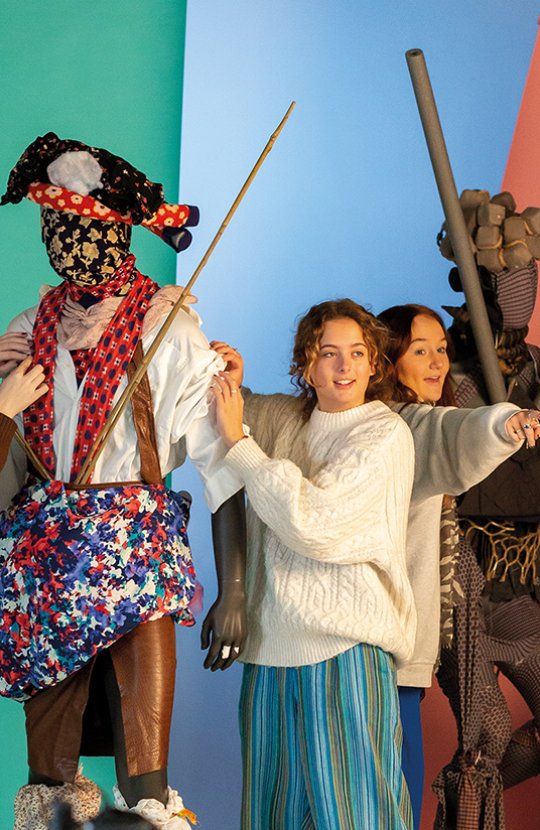
Virtual tour
Discover where you’ll spend your time as a student with our 360° tour, showcasing our facilities, accommodation, town and scenery.
"This is for students looking to gain the skills needed to access one of the most interesting industries to work in, with potential earnings in this industry being very good."
- Susie Coulthard, Costume Designer (guest speaker)
Stories from our community
Explore student projects, graduate successes, staff news and industry insights
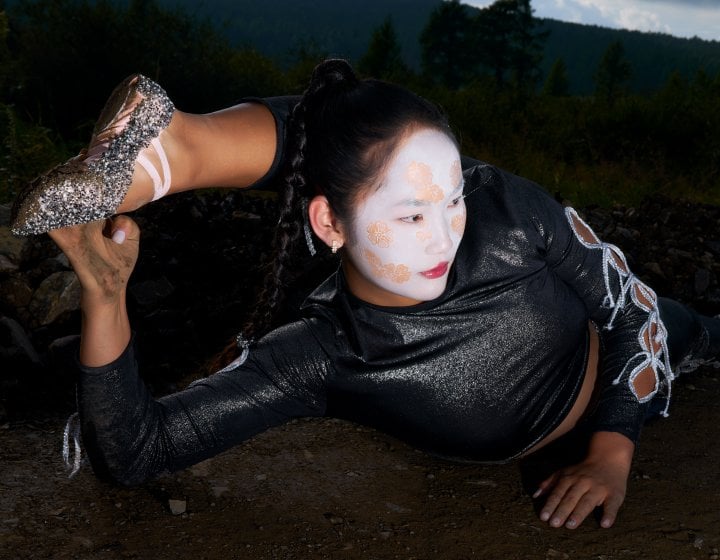
Fashion Photography alumna awarded grant by PhotoVogue
09 December 2025
2024 BA(Hons) Fashion Photography alumna Narantsetseg Khuyagaahas been awarded the Rising Voice Gran...
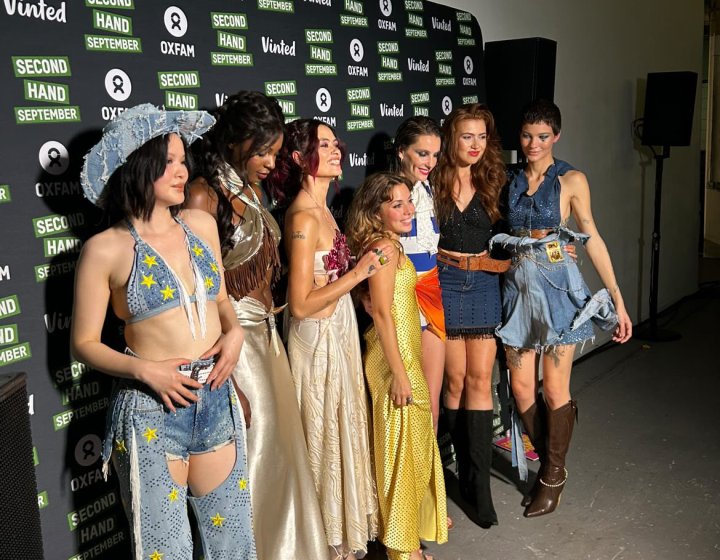
Credit: Vinted
Fashion graduate wins Vinted RE/style competition by creating catwalk looks from second-hand garments
25 November 2025
When Fashion Design BA(Hons) graduate Chiara Corso applied to be on a TV show, she didn’t think fo...
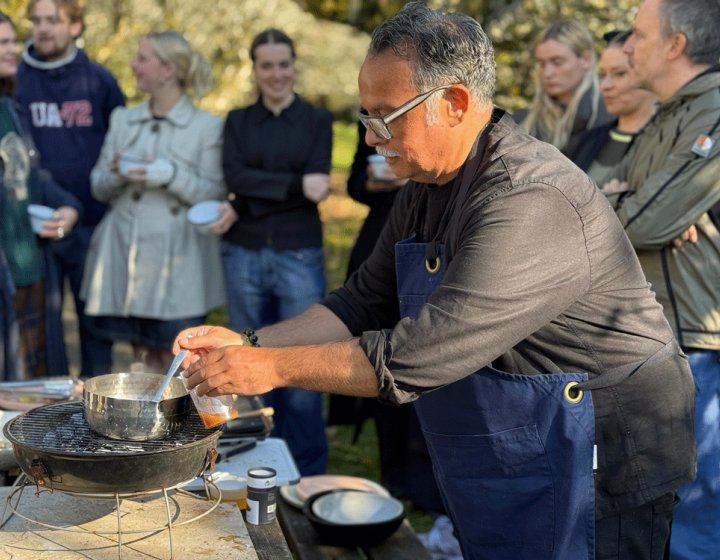
MasterChef UK winner visits fashion students to share insight on creative direction
18 November 2025
Falmouth’s Fashion & Textiles Institute recently welcomed Steven Wallis, the culinary innovator an...
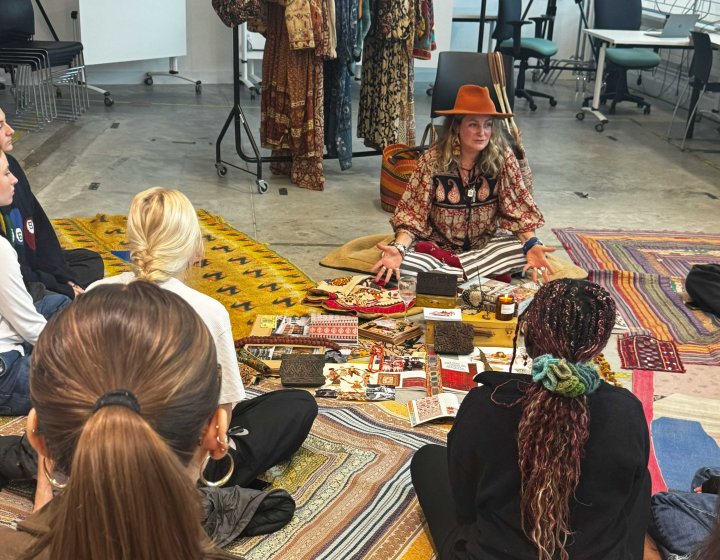
Fashion marketing students get brand-building masterclass from Naked Generation
10 November 2025
Creative businesswoman Lara Merrill founded slow fashion brand Naked Generation back in 2018, and wh...
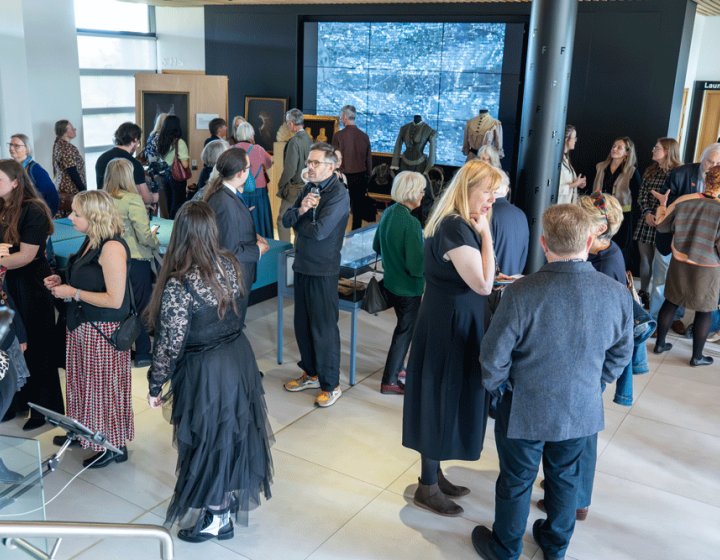
Falmouth University takes custodianship of prestigious historic clothing collection
03 November 2025
Computer games, high-definition digital archiving and immersive visitor experiences are just some of...
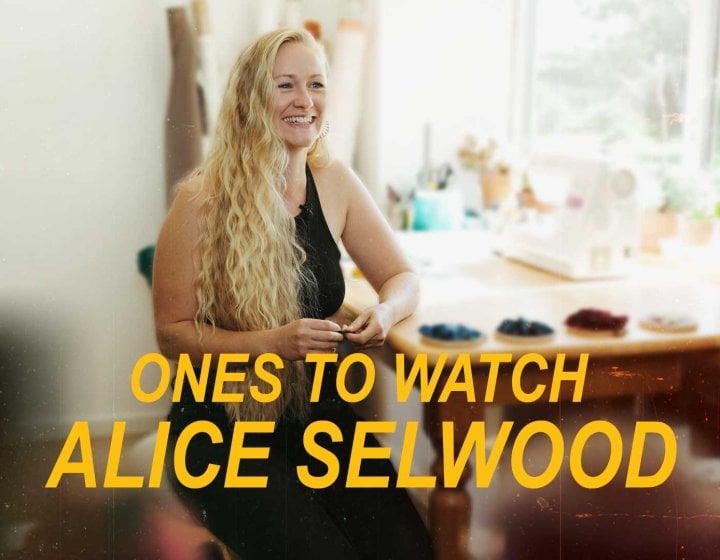
Fashion & Textiles alumna on freelance success, sustainability and the allure of Cornwall
03 October 2025
Alice Selwood is a multi-talented creative. Beginning her Falmouth journey on Textile Design BA, she...
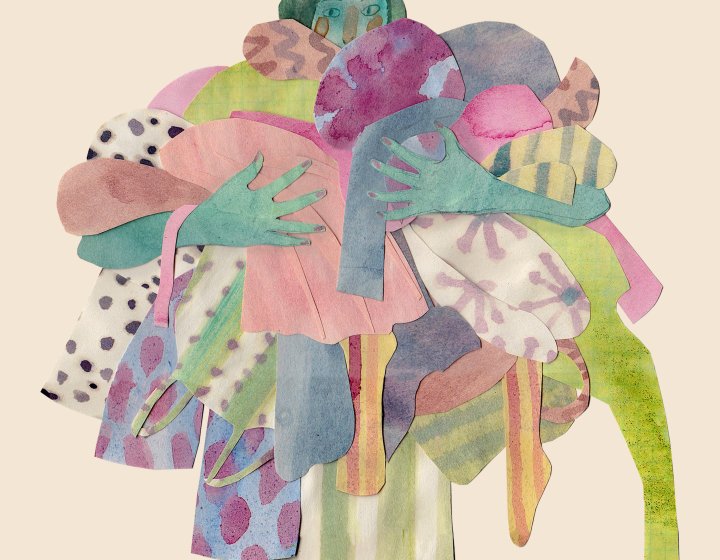
Empowering through repair: Sustainable Fashion community bring mending workshop to Falmouth high street
02 October 2025
Members of Falmouth’s Sustainable Fashion MA (Online) course are leading a mending and repair work...
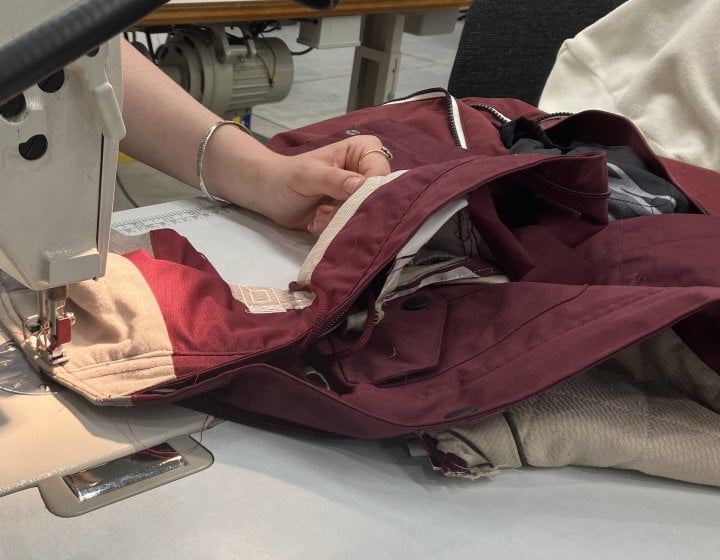
Fashion Design students breathe new life into used ski jackets
04 September 2025
Students in the second year of Falmouth’s Fashion Design BA have worked on an exciting circular de...
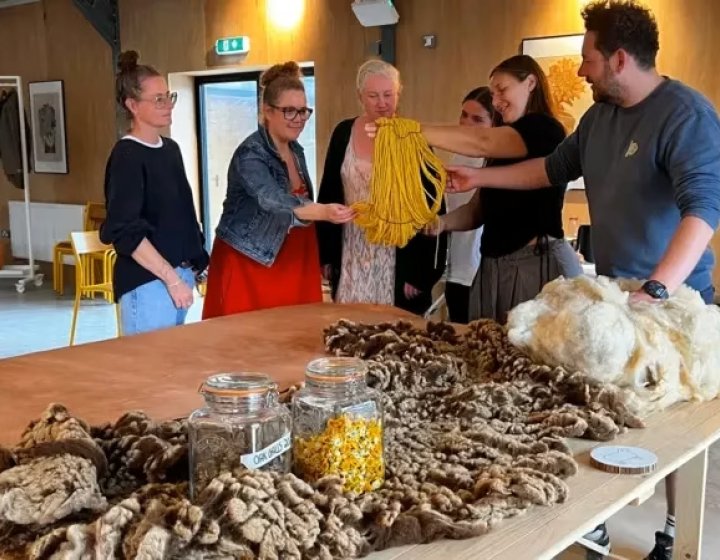
Sustainable Fashion students go behind the scenes on pioneering “fashion farm”
18 August 2025
Students on Falmouth’s online master’s in Sustainable Fashion recently visited Great Cotmarsh Fa...
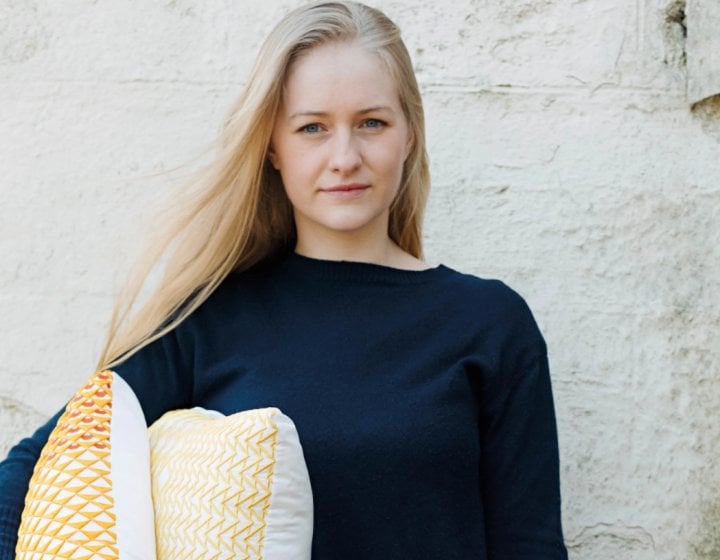
Natural Innovation: the Falmouth designer reimagining textiles with biomaterials
11 July 2025
Alice Selwood is a multitalented creative. After graduating from Falmouth’s Textile Design BA in 2...
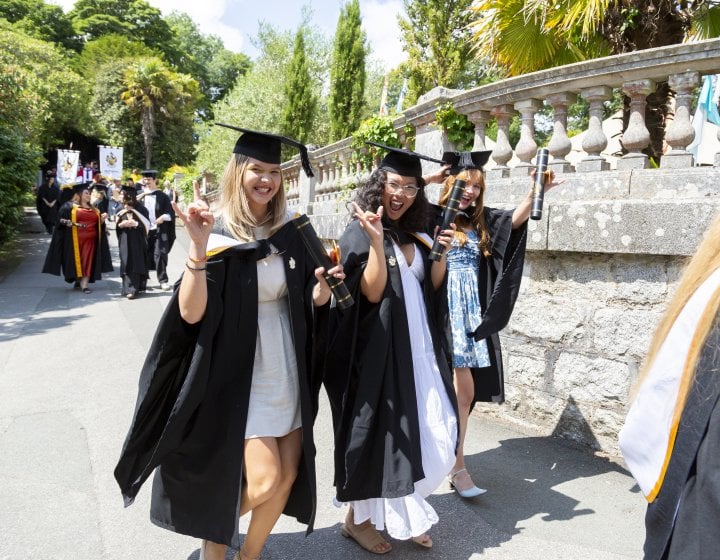
Graduation Success Stories: Where our 2024 graduates are now
04 July 2025
For more than a century Falmouth has shaped generations of artists, designers, makers and entreprene...
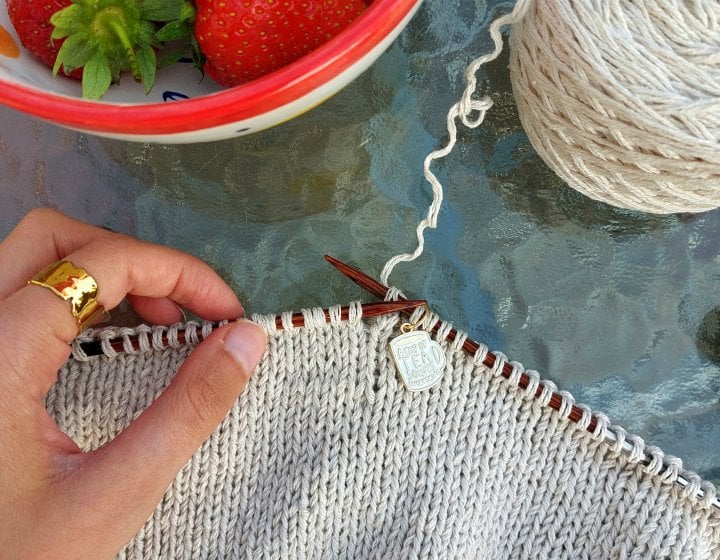
Changing careers through online study
10 June 2025
In this article, Sustainable Fashion MA (Online) student Alanis tells us about how she’s transform...
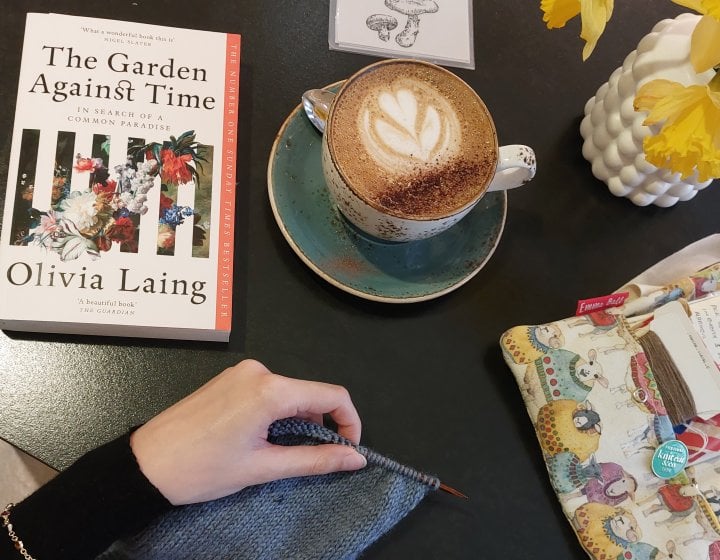
My experience studying online with ADHD
24 April 2025
Hey, my name’s Alanis and I study Sustainable Fashion online with Falmouth. Last month I was diagn...
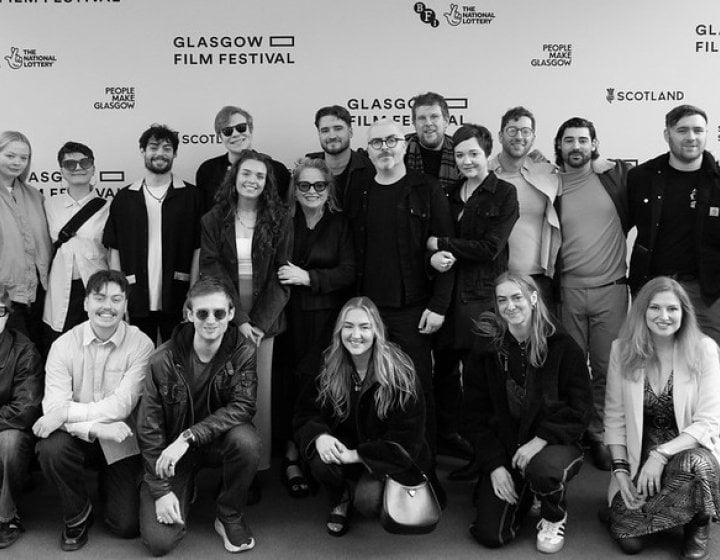
‘The Birdwatcher’ premieres at UK’s leading horror film festival
21 March 2025
Students from across Falmouth’s School of Film & Television, Fashion & Textiles Institute, and Gam...
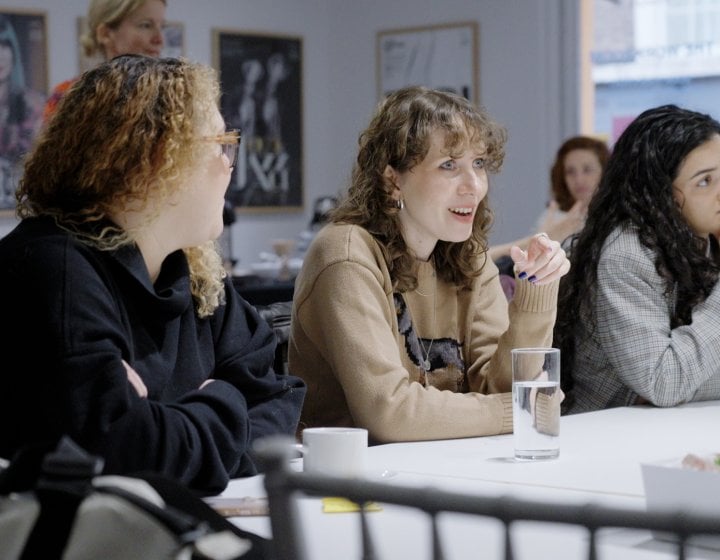
Sustainable Fashion students collaborate with The Independent
27 February 2025
Members of Falmouth’s Sustainable Fashion MA (Online) community recently came together with The In...
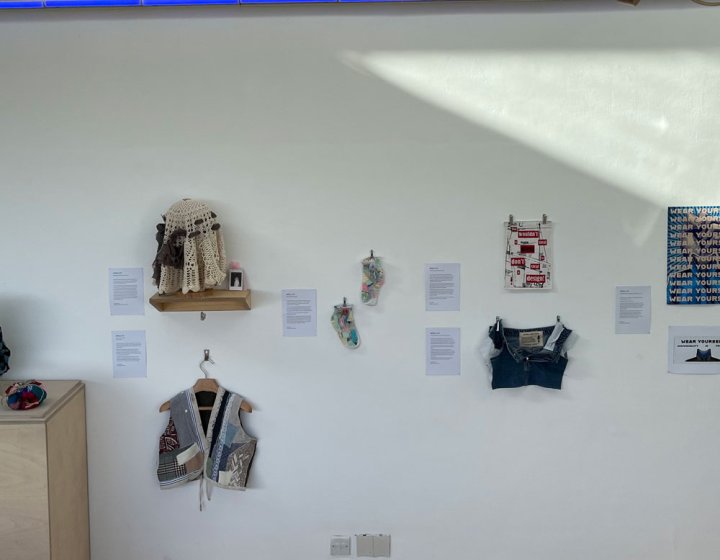
Fashion and Textile students’ work displayed at Newlyn Art Gallery & The Exchange
12 February 2025
Students across Falmouth’s Fashion & Textiles Institute have been selected to have their work feat...
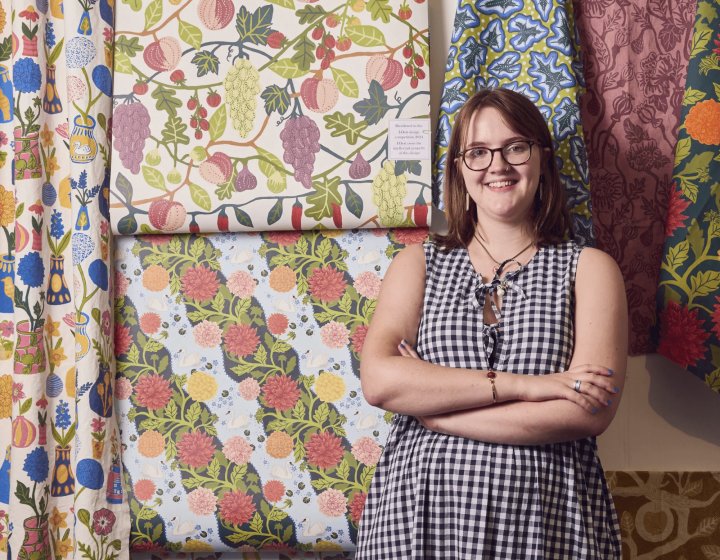
Graduate Spotlight: Textile Designer Lucy Martin
03 February 2025
Nature-loving textile design graduate Lucy Martin’s career has got off to an exciting start. Hot o...
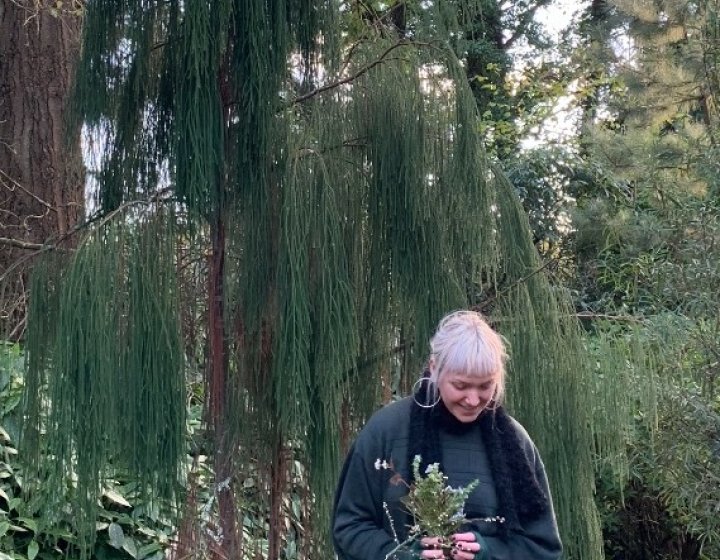
Why I chose to study Fashion Marketing at Falmouth
03 January 2025
This article was written by Fashion Marketing BA(Hons) student Belle.
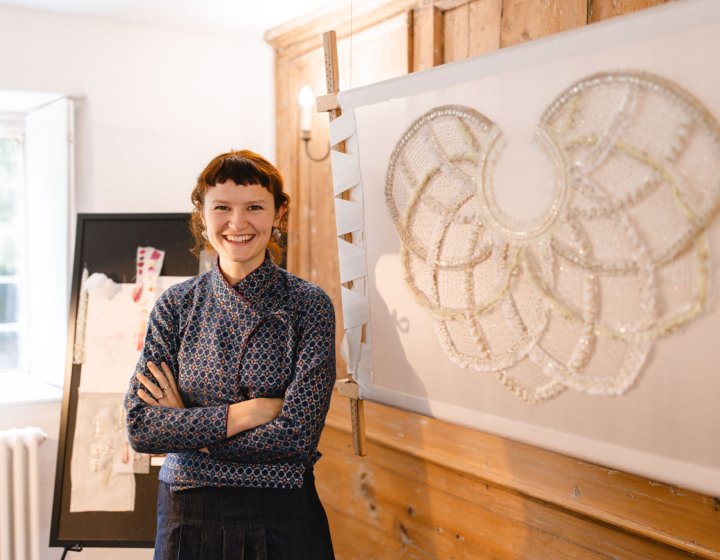
Credit: Oliver Holmes
From CHANEL to Queen Camilla: a catch-up with Textile Design graduate Beth Somerville
10 December 2024
2023 was a big year for Textile Design BA (Hons) graduate Beth Somerville. From being named overall ...
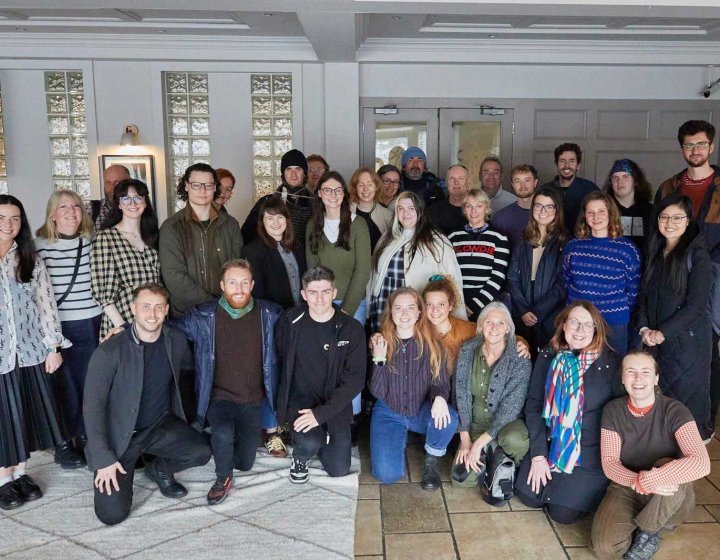
The group at the residency. Credit: Future Island-Island
Sustainable Fashion students win Regenerative Rathlin Open Design Competition
03 December 2024
Two students on Falmouth’s online master’s in Sustainable Fashion have recently attended a desig...
How you'll learn & be assessed
You'll hone your creative practice and gain invaluable practical and critical skills through a blend of lectures, seminars, masterclasses, workshops, tutorials and guided independent study.
At Falmouth, we use a 'digitally enhanced learning & teaching' approach. Your experience will always be predominantly in-person, including seminars, tutorials and studio teaching, with some, more targeted elements, being online either live (synchronous) or pre-recorded (asynchronous). You can read more here.
100% of your assessment will be coursework.
Assessment methods
- Foundation year assessments are 100% coursework based
- Assessment can take the form of artefacts (such as pieces of costume you have made), portfolios, projects, reports and dissertation.
- Formative feedback will be ongoing through regular tutorials with academic staff and visiting professionals, and summative feedback will take place following the end of the designated study block assessment periods.
Facilities
- Open plan contemporary studios
- Industrial sewing machines and specialist construction equipment
- Dye lab and breakdown facilities
- Access to digital suites with Adobe CS, Gerber pattern plotting and CLO3D software
- Wardrobe store with a selection of costumes from contemporary history
- Access to archive collections of historical and contemporary garments
- Collaborative opportunities within the School of Film and Television
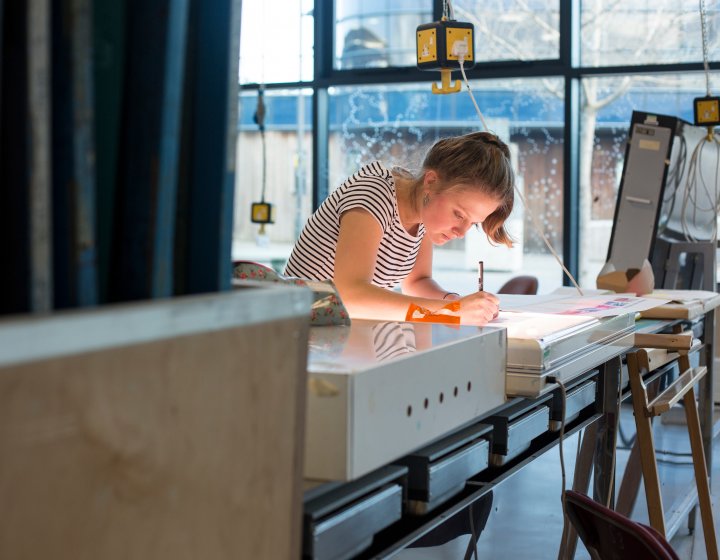
Fashion & Textiles Facilities
Centred around studio spaces that cater for solo and group working, our Fashion & Textiles Insti...
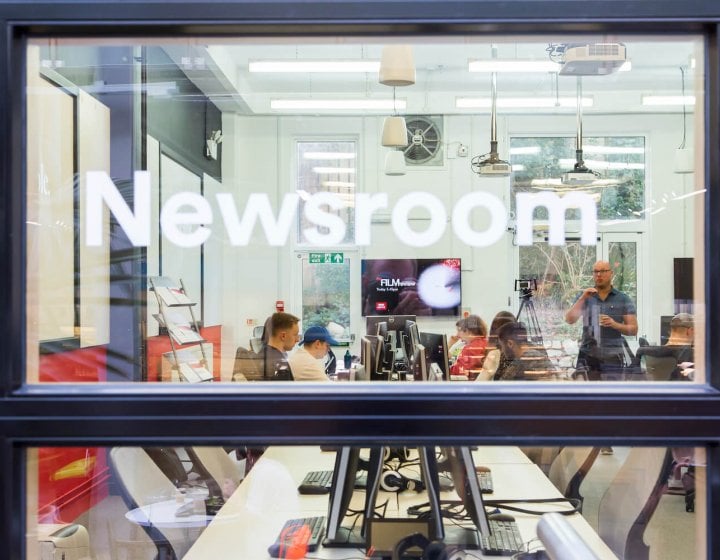
Media Equipment and Facilities
Our industry-level facilities offer everything you need to practice and produce animation, film, TV,...
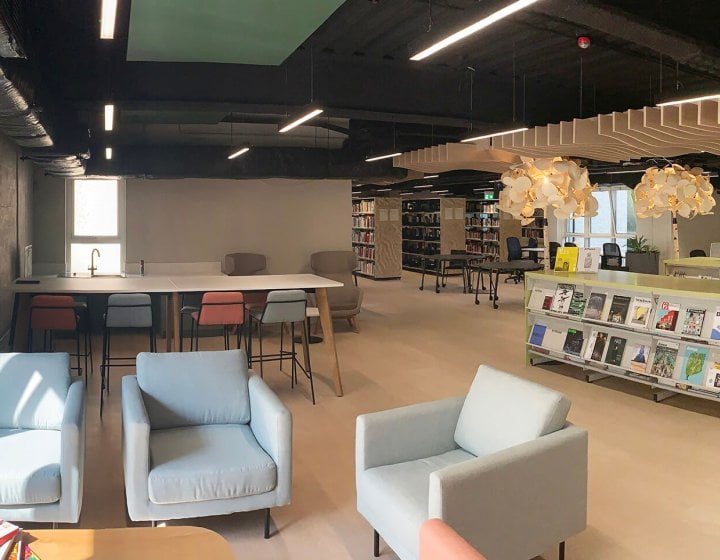
Library Facilities
Offering extensive collections, our two libraries provide a wealth of digital resources, magazines, ...

Sports Centre
Our Sports Centre, on Penryn Campus, includes a spacious gym with up to 90 of the latest, new statio...
Staff
Staff have experience at the highest levels of industry and bring established and innovative new practices to the course. Their experience spans costume design and supervision through to breakdown, plotting and characterisation for companies such as Paramount Pictures, the BBC, The National Theatre and Channel 4.
Some members of staff only teach on specific modules, and your course might not feature every staff member who teaches on the course.
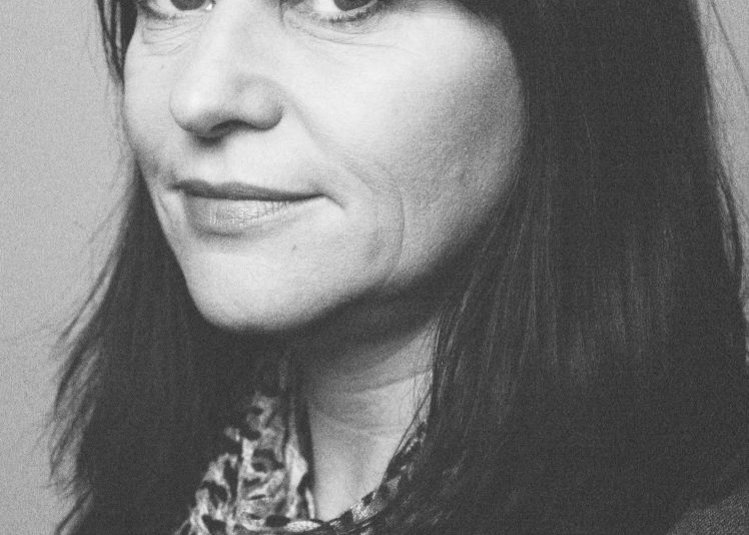
Dr Julie Ripley
Course Leader, BA(Hons) Costume Design for Film & TV
Dr Julie Ripley is a senior lecturer and course leader for BA(Hons) Costume Design for Film & TV...
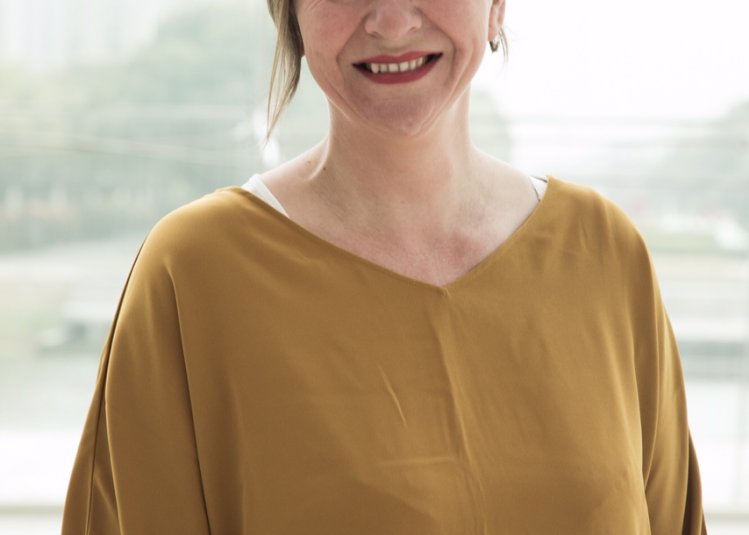
Dr Kate Strasdin
Senior Lecturer
I joined Falmouth in 2009 as an Associate Lecturer, teaching across the fashion and textile undergra...
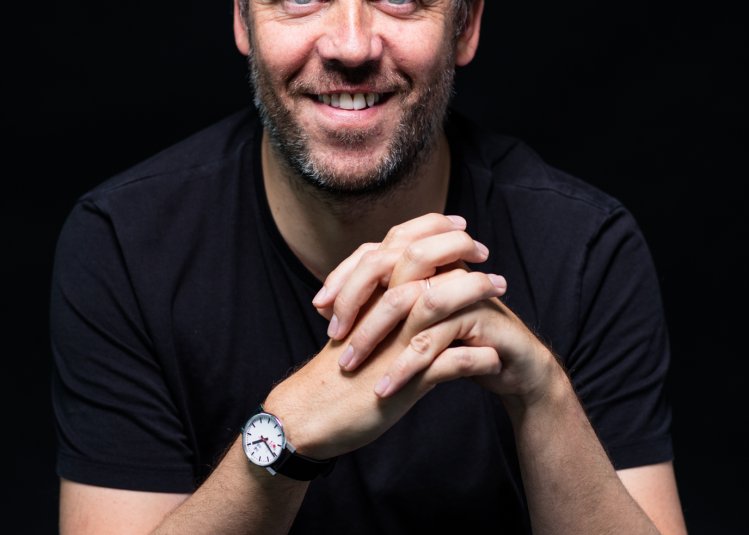
John Boddy
Head of Fashion Design
John studied fashion design, specialising in womenswear, at Central Saint Martins College of Art and...
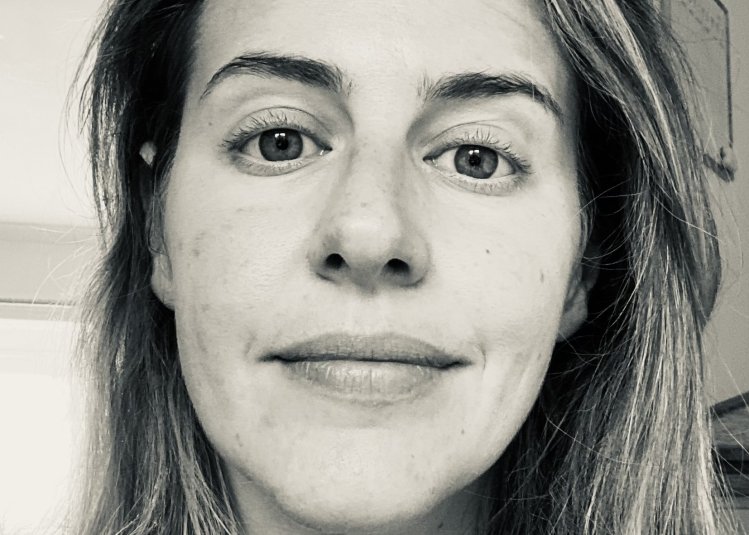
Giulia Chini
Lecturer, Costume Design for Film & Television BA(Hons)
Giulia graduated in Set Design in Italy (Academy of Arts, Genova) and has a master’s degree in Cos...
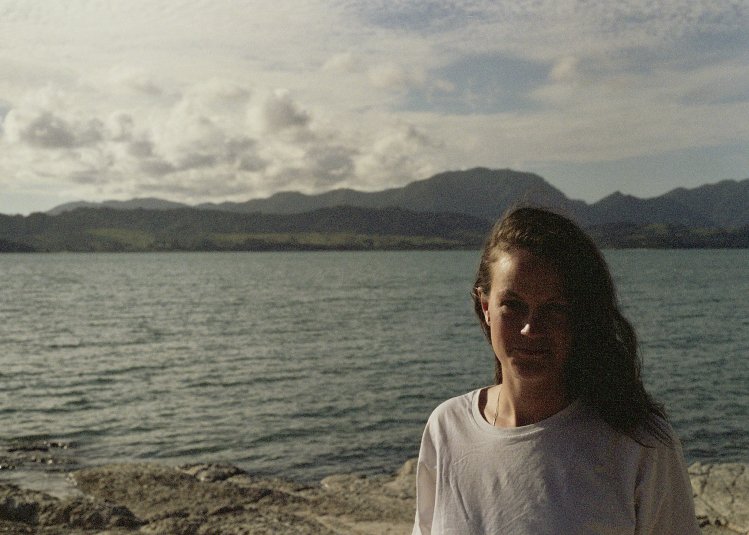
Jessie Metcalf
Lecturer, Costume Design for Film & Television BA(Hons)
Jessie joined Falmouth University in 2021 as a lecturer in Costume Design for Film & Television....
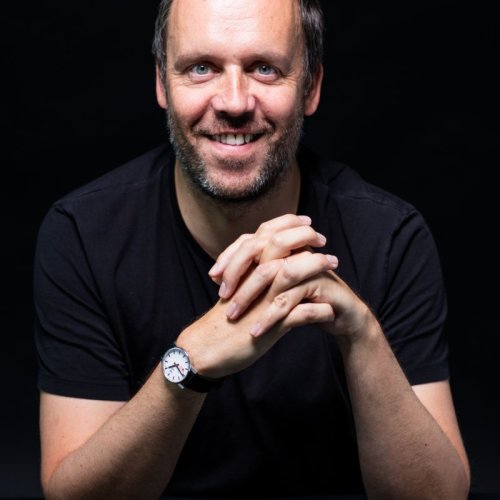
Got a question about this course?
If you want to know more about the course structure, our application requirements or what our graduates have gone on to achieve, our friendly course team is here to help.
Chat to John
Careers
As a costume design graduate, you could become:
- A costume designer for film and TV, commercials or music videos
- A stylist or styling assistant for celebrity, commercial or internet content
- A costume supervisor for visual media
- A costume stand-by, working on set to look after hero talent
- A costume buyer for film and TV
What can you do with a fashion degree?
There are opportunities to pursue costume design for film and television or fashion media. Alternatively, graduates may wish to move into styling, advertising or editing.
How to apply
Ready to apply for 2026?
You can apply for our undergraduate degrees via UCAS. You'll need our university UCAS code (F33) as well as your course code (which you'll find on your course page) for your application.
Applying as an international student?
There are a number of different ways to apply to study at Falmouth as an international student. Find out how you can become part of our creative community.
| Course route | UCAS code |
|---|---|
| Costume Design for Film & Television BA(Hons) three year degree | W451 |
| Costume Design for Film & Television BA(Hons) with Integrated Foundation Year | FY14 |
| Costume Design for Film & Television BA(Hons) with professional placement | PY21 |

Application advice & interview information
Go to ToolkitFor starting your studies in 2026
UK applications: 14 January 2026 (for equal consideration)
Applications after the 14 January will be considered on a first-come, first-served as long as there are places available. Apply for this course now.
For starting your studies in 2027
UK applications: 13 January 2027 (for equal consideration)
International fee payers
International fee payers can apply throughout the year. But we recommend applying as early as possible, to make time for visa and travel arrangements.
We consider all applications on their own individual merit and potential.
Our diverse community is creative, innovative and entrepreneurial. We recognise that these qualities aren’t always shown in academic grades alone. That’s why, while many of our applicants achieve high academic grades, we also welcome those who can demonstrate their potential through an exceptional portfolio or performance.
We welcome applications from all subject backgrounds, whether you’ve specialised in STEM, the arts or humanities. Find out more about our Entry Requirements here.
Course routes & entry requirements
BA/BSc(Hons) three year degree: minimum 64 UCAS Tariff points
BA/BSc(Hons) four year degree with professional placement: minimum 64 UCAS Tariff points
BA/BSc(Hons) four year degree with Integrated Foundation Year: minimum 32 UCAS Tariff points
At Falmouth, we'll consider the equivalency of your specific qualifications against our entry requirements and support you through your application journey.
View our International Entry Requirements
Language requirements
For applicants whose first language is English we require you to have or be working towards GCSE English Language Grade 4 (C), or equivalent.
If English is not your first language you will need to meet the same standard which is equivalent to the IELTS Academic 6.0 overall score, with at least 5.5 in Reading, Writing, Speaking and Listening. We accept a range of in country equivalencies and approved tests.
If you need a student visa to study in the UK, you may need to take a recognised language test. You can read our English Language Requirements for more information.
Fees, costs & funding
Tuition fees
| Annual tuition fee | Student |
|---|---|
| £9,790 per year | Full-time UK |
| £19,950 per year | Full-time EU/international |
| £1,955 per professional placement year | Full-time UK and EU/international |
| £9,790 per Integrated Foundation Year | Full-time UK |
| £19,950 per Integrated Foundation Year | Full-time EU/international |
| Annual tuition fee | Student |
|---|---|
| £9,535 per year | Full-time UK |
| £17,950 per year | Full-time EU/international |
| £1,905 per professional placement year | Full-time UK and EU/international |
| £9,535 per Integrated Foundation Year | Full-time UK |
| £17,950 per Integrated Foundation Year | Full-time EU/international |
Tuition fees for September 2027 will be confirmed in summer 2026.
Tuition fees are set annually and are subject to review each year. The University may therefore raise tuition fees in the second or subsequent years of a course, in line with inflation and/or the maximum permitted by law or Government policy. Students will be notified of any changes as soon as possible.
The figures above don't include accommodation and living costs
Typical course costs
Recurring annual costs
You will set up a credit account of £200 with the department in your first week. This will cover all your workshop materials for the three years of the course.
One-off costs for the duration of the course
- Printing and presentation materials - £50
- Additional spending on materials - £70 on average for each module
- All students require a laptop or tablet in order to access online content, create presentations and write essays.
Course equipment and costs
You will set up a credit account of £150 with the department in your first week. This will cover all your workshop materials for the three years of the course. Students will be required to purchase materials for any costume makes as well as purchasing second-hand garments and sketchbooks for design projects.
Additional costs
You will also need to factor in printing costs and presentation materials. It is difficult to give an exact figure on these additional costs as each project output will be individual to the student. A rough estimate would be £50 per practical module for these additional materials (based on one sketchbook, a charity shop purchase, thread, trims and/or fabrics), but this can vary depending on the ambitions of your project.
It is likely that you may need to spend more on materials in your second and third years, but this will depend on the areas you choose to work in and the materials you choose to work with. We anticipate second- and third-year costs being less than £70 per practical module.
Many students raise funds through crowdfunding to meet higher costs.
Additional typical course costs for Integrated Foundation Year pathway
- £250 for materials
- A laptop/desktop computer
- Adobe Creative Suite
To engage in the digital learning activity, although you will be able to access IT suites on campus, you will benefit from a laptop to access the platforms and tools we use. Depending on your subject, you may need a specific type of computer. If you're unsure about what you might need, please contact our course advisors.
Course equipment and costs
You will be recording your creative progress and writing about your work throughout the Integrated Foundation Year and so a laptop computer and a smartphone are highly recommended.
Typical course material costs:
- £250 - Recurring annual costs may include: art/creative materials and costs towards your end of year show exhibition and can vary depending on material choices and specialism.
Study trips:
There are several field trips, and you will need to allow for some costs for student contributions towards coach hire and exhibition entry. Total annual cost of day trips approximately £60.
If you want to attend the planned week-long residential trip to London in the Spring of 2026 then you will need to plan for a £100 deposit payment shortly after arriving on the course, to secure a place, and to budget for a total trip cost of approx. £400 - to be paid in instalments.
Funding
For information about funding available, please visit our student funding pages.
Ask a student
What better way to find out about life at Falmouth University than by asking our current students?
From course details and academic support, to the social scene and settling in, our students are ready and available to answer any questions you might have. Simply set up your account, send them a question and they'll get back to you within 24 hours.
Similar courses
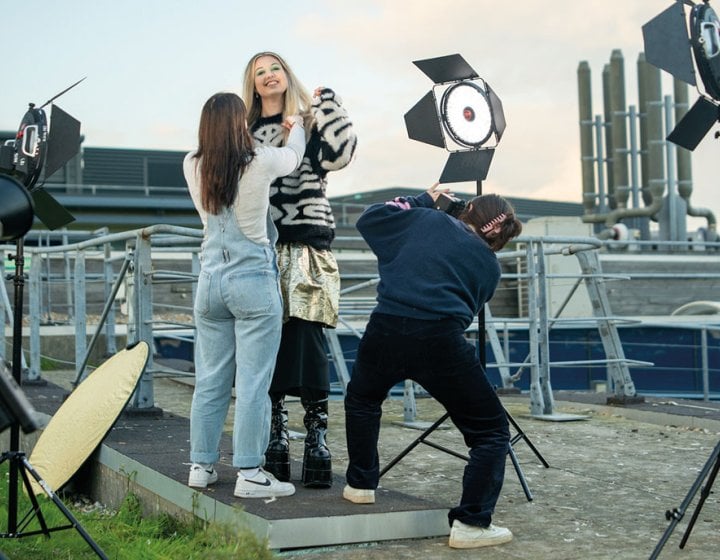
Fashion Styling & Art Direction BA(Hons)
Influence the shape of fashion as you take on the world of fashion styling. On this future-focused c...
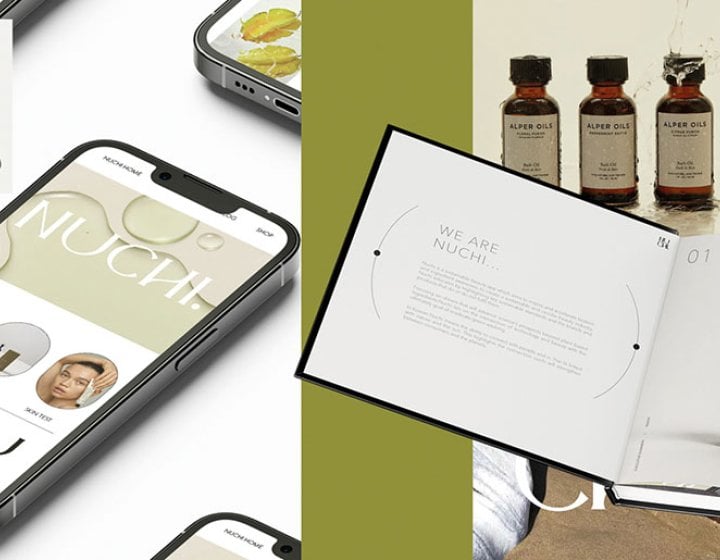
Fashion Marketing BA(Hons)
Blend your flair for communication and eye for fashion into a successful career as a fashion markete...
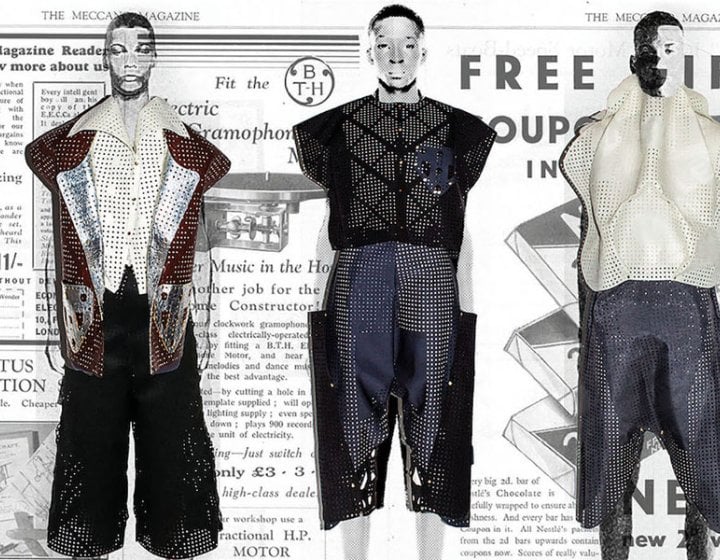
Fashion Design BA(Hons)
Turn heads and change minds as you steer the fashion industry toward a more sustainable future. Work...
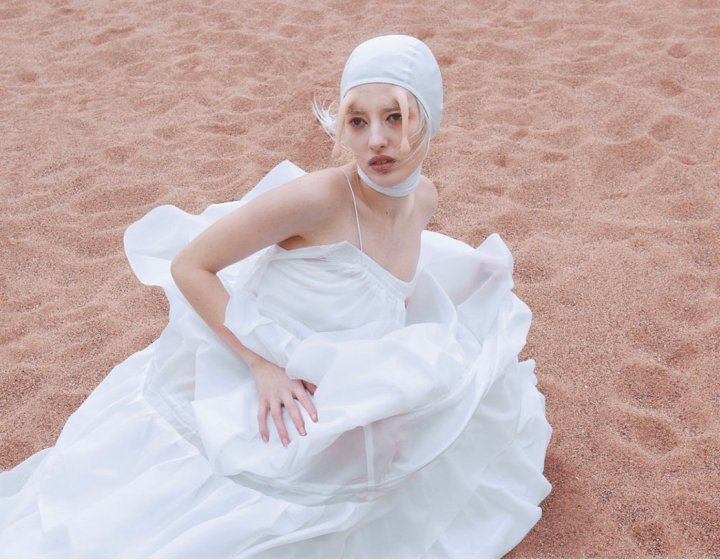
Fashion Photography BA(Hons)
Develop your unique artistic voice and springboard into the industry as an innovative fashion photog...
Open Days and events
From visiting campus to online application advice, get all the information you need about joining our creative community.
Find an event
